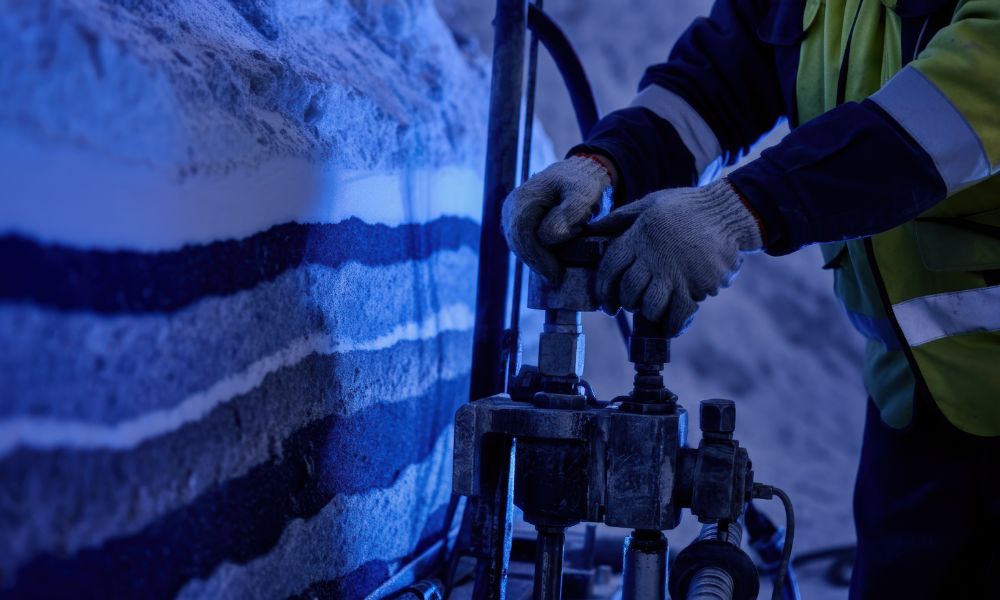OTTAWA (Reuters) — North American regulators should phase out the type of rail car involved in last July's deadly Lac-Mégantic, Que., crash "sooner rather than later," Canadian investigators said, urging the United States and Canada to impose tougher standards swiftly.
Canada's Transportation Safety Board (TSB) and the United States National Transportation Safety Board (NTSB) issued three recommendations each, adding pressure on regulators to improve safety on the tracks after a series of oil-by-rail accidents in recent months.
Neither the TSB nor the NTSB have the power to impose regulations, which only the U.S. and Canadian governments can put in place.
"A long and gradual phase-out of older cars simply isn't good enough," TSB Chairwoman Wendy Tadros said at an Ottawa news conference. "The period in which that phase-out happens is something we're going to leave to regulators, but we're saying this should be happening sooner rather than later."
Government officials in both countries said they viewed the recommendations as a matter of urgency.
The oil that exploded in the Lac-Mégantic derailment, which caused an explosion and fire that killed 47 people, was carried in DOT-111 tanker cars that pre-dated tougher new safety standards for that type of car that were introduced in October 2011.
While DOT-111 cars built since 2011 comply with new requirements, tens of thousands of older ones remain in service, and shipping oil by rail has grown exponentially as the industry discovers and extracts crude deposits in areas such as the Bakken region of North Dakota, where pipelines are scarce.
"The large-scale shipment of crude oil by rail simply didn't exist 10 years ago, and our safety regulations need to catch up with this new reality," said NTSB Chairwoman Deborah Hersman. "While this energy boom is good for business, the people and the environment along rail corridors must be protected from harm."
Canadian Transport Minister Lisa Raitt and U.S. Transportation Secretary Anthony Foxx have already held discussions about new safety standards for the DOT-111 cars.
In 2012, the NTSB recommended that the DOT-111 cars be retrofitted or phased out. Raitt said earlier this month that new standards would be introduced fairly soon, and North Dakota Senator John Hoeven said Foxx had promised tougher standards "in weeks, not months.
North Dakota Governor Jack Dalrymple told Reuters this week the new standards were needed immediately.
Last month, a 106-car BNSF Railway train carrying crude oil eastward crashed into a derailed grain train near Dalrymple's hometown of Casselton, N.D.
In early November, two dozen cars on a 90-car oil train derailed in rural Alabama, erupting into flames that took several days to fully extinguish.
Canada's TSB said that investigators had found that the older DOT-111 cars in the Lac-Mégantic crash experienced significant ruptures even at slower speeds, based on their analysis of the cars at the rear of the train that suffered tank shell and head damage.
The U.S. NTSB recommended that regulators require expanded route planning for shipping dangerous materials to avoid populated and other sensitive areas.
It also recommended auditing shippers and rail carriers to ensure they properly classify hazardous materials and have adequate safety plans.
Thirdly, it recommended U.S. authorities develop an audit program to ensure rail carriers are able to respond properly to worst-case scenario accidents in which a train spills its entire oil cargo.
The Canadian agency made similar recommendations for route-planning and safety as well as for having emergency response plans along these routes.
Raitt she said in a statement she has instructed her officials to review the recommendations on an urgent basis.
"We have continuously demonstrated our commitment to safety by implementing every one of the Transportation Safety Board's recommendations arising from the investigation at Lac-Mégantic," she said.
At the U.S. Conference of Mayors in Washington, Foxx did not specifically comment on the new recommendations, but said there was no "magic bullet" to improve the safety of shipping oil by rail.
"We don't think this is a situation where one type of action is going to solve this problem," Foxx said. "We've got a prevention focus, we've got a mitigation focus, we've got an emergency response focus."
Later, the U.S. Department of Transportation said in a statement that safety was its top priority and that it was already acting on the recommendations.
"We agree that a comprehensive, all-of-the-above approach is needed to ensure the safe transport of crude oil. DOT has already begun taking actions on these recommendations and other additional steps..." it said. "We intend to take additional steps in the coming days and weeks."
Canada's Transportation Safety Board (TSB) and the United States National Transportation Safety Board (NTSB) issued three recommendations each, adding pressure on regulators to improve safety on the tracks after a series of oil-by-rail accidents in recent months.
Neither the TSB nor the NTSB have the power to impose regulations, which only the U.S. and Canadian governments can put in place.
"A long and gradual phase-out of older cars simply isn't good enough," TSB Chairwoman Wendy Tadros said at an Ottawa news conference. "The period in which that phase-out happens is something we're going to leave to regulators, but we're saying this should be happening sooner rather than later."
Government officials in both countries said they viewed the recommendations as a matter of urgency.
The oil that exploded in the Lac-Mégantic derailment, which caused an explosion and fire that killed 47 people, was carried in DOT-111 tanker cars that pre-dated tougher new safety standards for that type of car that were introduced in October 2011.
While DOT-111 cars built since 2011 comply with new requirements, tens of thousands of older ones remain in service, and shipping oil by rail has grown exponentially as the industry discovers and extracts crude deposits in areas such as the Bakken region of North Dakota, where pipelines are scarce.
"The large-scale shipment of crude oil by rail simply didn't exist 10 years ago, and our safety regulations need to catch up with this new reality," said NTSB Chairwoman Deborah Hersman. "While this energy boom is good for business, the people and the environment along rail corridors must be protected from harm."
Canadian Transport Minister Lisa Raitt and U.S. Transportation Secretary Anthony Foxx have already held discussions about new safety standards for the DOT-111 cars.
In 2012, the NTSB recommended that the DOT-111 cars be retrofitted or phased out. Raitt said earlier this month that new standards would be introduced fairly soon, and North Dakota Senator John Hoeven said Foxx had promised tougher standards "in weeks, not months.
North Dakota Governor Jack Dalrymple told Reuters this week the new standards were needed immediately.
Last month, a 106-car BNSF Railway train carrying crude oil eastward crashed into a derailed grain train near Dalrymple's hometown of Casselton, N.D.
In early November, two dozen cars on a 90-car oil train derailed in rural Alabama, erupting into flames that took several days to fully extinguish.
Canada's TSB said that investigators had found that the older DOT-111 cars in the Lac-Mégantic crash experienced significant ruptures even at slower speeds, based on their analysis of the cars at the rear of the train that suffered tank shell and head damage.
The U.S. NTSB recommended that regulators require expanded route planning for shipping dangerous materials to avoid populated and other sensitive areas.
It also recommended auditing shippers and rail carriers to ensure they properly classify hazardous materials and have adequate safety plans.
Thirdly, it recommended U.S. authorities develop an audit program to ensure rail carriers are able to respond properly to worst-case scenario accidents in which a train spills its entire oil cargo.
The Canadian agency made similar recommendations for route-planning and safety as well as for having emergency response plans along these routes.
Raitt she said in a statement she has instructed her officials to review the recommendations on an urgent basis.
"We have continuously demonstrated our commitment to safety by implementing every one of the Transportation Safety Board's recommendations arising from the investigation at Lac-Mégantic," she said.
At the U.S. Conference of Mayors in Washington, Foxx did not specifically comment on the new recommendations, but said there was no "magic bullet" to improve the safety of shipping oil by rail.
"We don't think this is a situation where one type of action is going to solve this problem," Foxx said. "We've got a prevention focus, we've got a mitigation focus, we've got an emergency response focus."
Later, the U.S. Department of Transportation said in a statement that safety was its top priority and that it was already acting on the recommendations.
"We agree that a comprehensive, all-of-the-above approach is needed to ensure the safe transport of crude oil. DOT has already begun taking actions on these recommendations and other additional steps..." it said. "We intend to take additional steps in the coming days and weeks."





